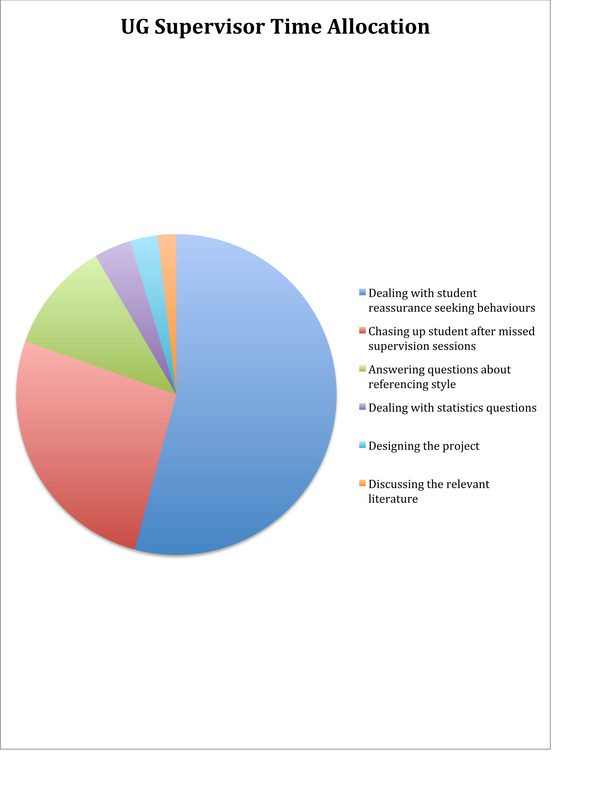Unfortunately, as a supervisor you’ll find that their mind isn’t focused on doing scientific research – it’s focused on getting a good mark for their project. This means that most of your time as a supervisor will be spent not on training your undergraduate supervisees to do research (as it should be), but on (1) telling them what they have to do to write up a good project, and (2) reassuring them that they’ve understood what you said is required for writing up a good project.
As an empirical scientist you might believe that the most important part of the training for your undergraduate project students is learning about experimental design and about statistical analysis. Wrong. Absolutely no over-arching information about experimental design will be absorbed by the student – only that they lie awake at night needing to know how many participants they will need to test and – more importantly – how will they get those participants?
Most project students have a small notebook they’ve bought from W H Smiths and in which they write down the pressing questions they need to ask their supervisor at the next supervision session (just in case they may forget). Questions like “Can I do this experiment in my bathroom in my student flat?”, “Can I test my mother’s budgerigar if I’m short of participants?”, “Will it matter if my breath smells of cider when I’m coding my data?”, “Do I need to worry about where I put the decimal point?”, “Will it affect my participants’ behaviour if I dye my hair day-glow orange in the middle of the study?”… and so on.
I believe that project students ask these kinds of questions because none of these questions are properly addressed or answered in standard Research Methods textbooks – an enormous oversight! Research Methods textbooks mince around talking about balanced designs, counterbalancing, control groups, demand effects, and so on. But what about the real practical issues facing a final year empirical project student? “How will I complete my experiment if I split up with my boyfriend and can’t use his extended local family as participants?”, “Where can I find those jumbo paper clips that I need to keep all the response sheets together?”, “Why do I need to run a control condition when I could be skiing in Austria?”
Perhaps we need some new, young, motivated research methods authors to provide us with the textbooks that will answer the full range of questions asked by undergraduate empirical project students. Sadly, at present, these textbooks answer the questions that students aren’t interested in asking – let’s get real with undergraduate research training!

 RSS Feed
RSS Feed